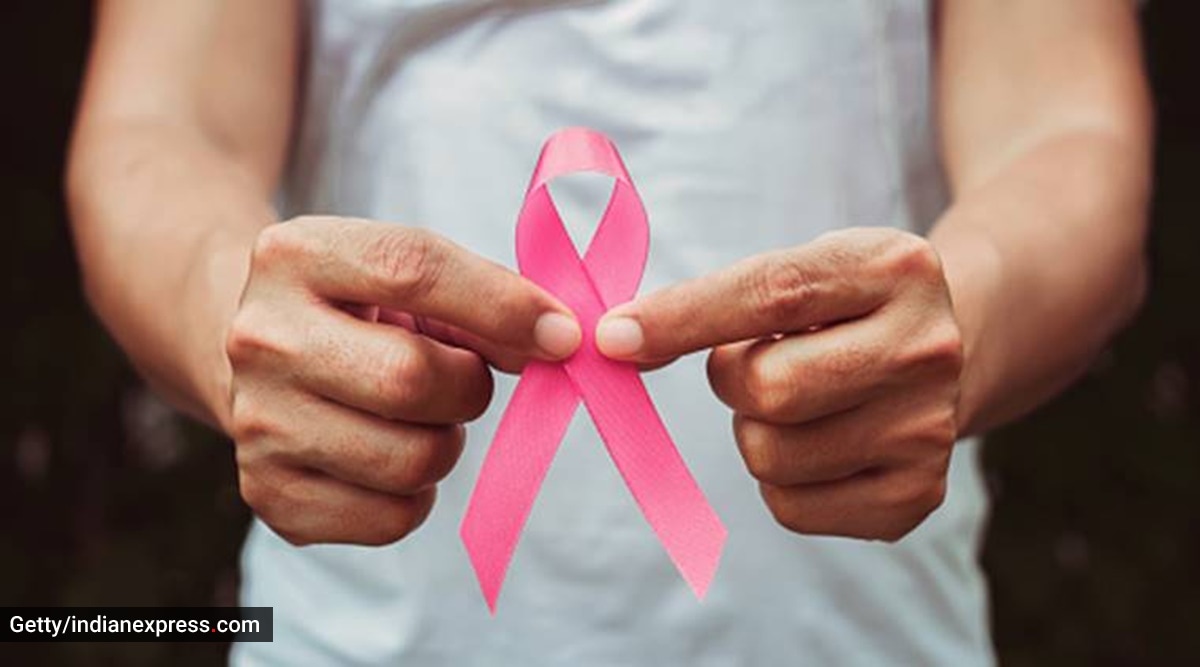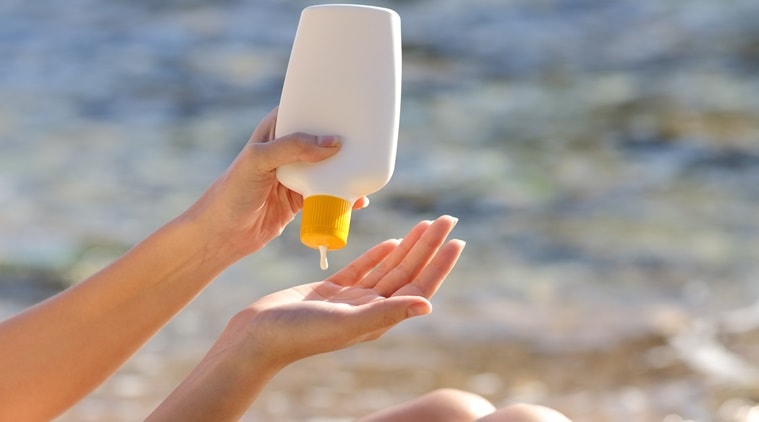“The same drugs that kill cancer cells also stunt the growth of healthy skin cells. This means that your skin is not renewing itself at the rate that it normally does,” Dr Rinky Kapoor said

The earlier you start with modified skincare during chemotherapy, the better you will be able to ward off the side-effects before they become too apparent. (Source: Getty Images/Thinkstock)
Chemotherapy is the most common treatment for cancer. But the treatment can affect one’s skin and hair in a major way. Hence, skincare invariably becomes extremely important if you are undergoing chemotherapy or any other cancer treatments, said Dr Rinky Kapoor, consultant dermatologist, cosmetic dermatologist and Dermato-Surgeon, The Esthetic Clinics.
“Your regular skincare routine will need to be adjusted and changes will be needed to help the skin deal with the stress of chemotherapy. The same drugs that kill the cancer cells also stunt the growth of healthy skin cells. This means that your skin is not renewing itself at the rate that it normally does,” Dr Kapoor said.
Here are some common skin care issues one may face:
*Change in skin colour, your complexion appears grey or yellow
*Skin and feet turn red and hypersensitive
*Dry and wrinkly skin because of dehydration
*Brittle and cracked cuticles
*Weakened immune system makes the skin susceptible to infections
*Darkening of the skin
*Itching and rashes
*Acne during the initial weeks of treatment
*Increased sun sensitivity, sunburn with minimal sun exposure
*Sudden allergies
*Hyperpigmentation
*Bedsores
*Burning or skin pain because of radiation dermatitis
*Peeling and crusting
*Nail infections
*Yellow nails
As per Dr Kapoor, the effects of chemotherapy on skin differ from person-to-person. The first step to good skincare during chemotherapy is to find a dermatologist who has a specialty in oncology and has ample experience in the treatment of skin, hair, and nail issues during cancer treatments. The earlier you start with modified skincare during chemotherapy, the better you will be able to ward off the side-effects before they become too apparent.
Here are some basic steps that you can incorporate into your daily skincare routine
*Switch to cleansers and moisturisers that are fragrance and preservative-free.
*Avoid using any product that contains hormones or their derivatives as they will harm your skin during chemotherapy.
*Don’t use any sprays, perfumes, colognes, aftershaves, or any alcohol-based products that dry the skin.
*Bathe with lukewarm water always. Too cold and too hot water will harm your skin and dry it further. You don’t have to take a long bath daily unless you are into physical work. Limit the bath time to 10 minutes maximum.
*Apply a suitable, unscented and paraben-free moisturiser on your skin within 10 minutes of taking bath. Massage gently and do not rub too hard. Choose a moisturiser that is in ointment form rather than lotion.
*Use an electric shaver or razor to shave rather than shaving foams.
*Wear loose-fitting clothing made of breathable fabrics such as cotton.
*Wash your clothes with mild and allergen-free detergents.
*Drink at least 10-12 glasses of water every day unless your oncologist tells you otherwise.
*Keep your nails trimmed short.
*Wear gloves on your hands to protect the skin and nails.
*Sleep straight on your back with a normal pillow under your head. This will help keep the swelling on the face down.
*Do not scrub while bathing.
*After bathing, pat your skin dry and do not rub the towel over it.
*Apply moisturiser on hands and feet before going to bed and wear cotton gloves on them.
*If you have naturally dry skin, then invest in products containing ammonium lactate to help your skin heal.
*You don’t have to avoid the sun completely but you need to be careful with sun exposure, suggested Dr Kapoor. Wear a sunscreen with 30++ SPF or more and reapply every two hours without fail. Prefer the use of a sunscreen that contains titanium oxide and zinc oxide.
*Wear wide-brimmed caps or hat and invest in sun-protective clothing that covers your skin when you step outside.

Apply SPF 30+ sunscreen (Source: Thinkstock Images)*Protect your eyes by wearing sunglasses that offer UV protection.
*Instead of scratching the skin when it itches, use creams that contain hydrocortisone to help soothe it.
*If you have open sores on the skin, then use doctor-prescribed medications.
If you notice any cuts and bruises on the skin, then consult your dermatologist immediately. Be extra careful to prevent inflammation and infections as they can be life-threatening.
Make up tips for during chemotherapy
Skin changes during chemotherapy can cause anxiety and can make the treatment stressful. Buy new make products that are free of harmful chemicals. Replace the beauty products every two to three months.
*Use silicone base primers to make the skin texture appear smooth.
*Opt for cream-based concealer to hide the blotchy spots.
*Tinted lip balm is better option than lipstick. Pick a lip balm that has sunscreen in it.
*Apply some blush on your cheekbones and blend it towards the ears.

